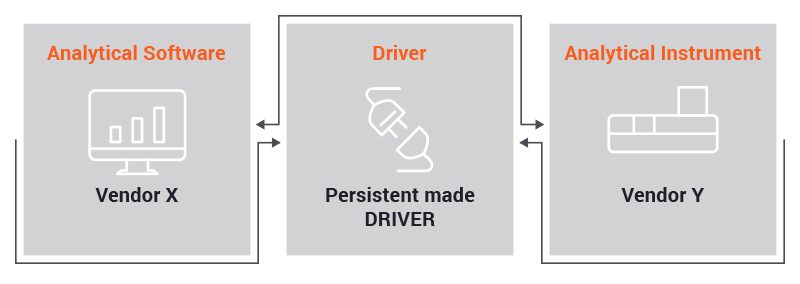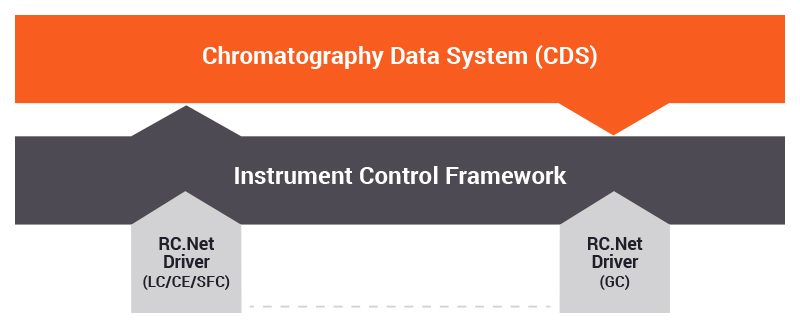Over the past several years, laboratories have seen an evolution in Chromatography Data Systems (CDS) with an intent to move towards minimum vendor/equipment involvement without hampering the quality of analytical results. CDSs are widely used in laboratories to control Liquid Chromatography (LC) or Gas Chromatography (GC) equipment and to collect results. Labs would prefer to use a single CDS – to limit training and simplify regulatory compliance – but to retain the option to use multiple vendors for instruments.
The Challenge
Each CDS offers its own driver API (native drivers) to allow the creation of control modules for specific instruments. These APIs are not standardized, which leads to a duplication of effort and increased cost to provide control modules on various CDS for a given HPLC or GC. It also adds complexity for the maintenance of the drivers, as multiple streams of code must be addressed to implement change requests or fixes.
Depending on how the various projects are handled and drivers implemented, that could lead to different feature set and look & feel for the same instrument on the different CDS platforms.
For an instrument vendor, there are:
The Solution
Persistent Systems develops third-party drivers for the majority of the CDS platforms and instruments on the market
While the development of native drivers is always possible, choosing to develop RC.Net compatible drivers allows you to implement a single driver for a given instrument that can be then validated and used on Agilent CDS platforms and other platforms implementing the Agilent Instrument Control Framework (ICF).
Persistent Systems can push the reusability concept further by creating generic, platform-agnostic drivers, then add a RC.Net layer: The generic driver can then be reused with another API layer to support another CDS or host applications.
Success Story: HPLC driver development for a Global Analytical Instruments manufacturer
A leading analytical instruments company needed to develop drivers for their HPLC line for Agilent OpenLab CDS and DataApex Clarity CDS. The need to support additional CDS platforms was also identified. Persistent proposed a RC.Net compatible driver solution, taking advantage of the Agilent ICF/ RC.Net SDK program to implement the driver into OpenLab CDS and Clarity through the ICF implementation in Clarity. Once a RC.Net driver is written it can be offered to a broader list of possible CDS vendors.
The team made use of existing Persistent accelerators to develop the methods screens and internal structure. All testing and validation for the solution was conducted in the Persistent Systems Laboratory. The architecture of the drivers is summarized below:
Outcomes
- Single set of code for all instrument drivers independently of the CDS.
- Full lifecycle management, including QA verification and validation.
- Management of drivers acceptance by CDS manufacturers.
- Potential reuse of drivers for additional applications
Find more content about
Analytical Instruments (1) CDS (1) Chromatography Data Systems (1) HPLC (1) RC.Net Technology (1)










